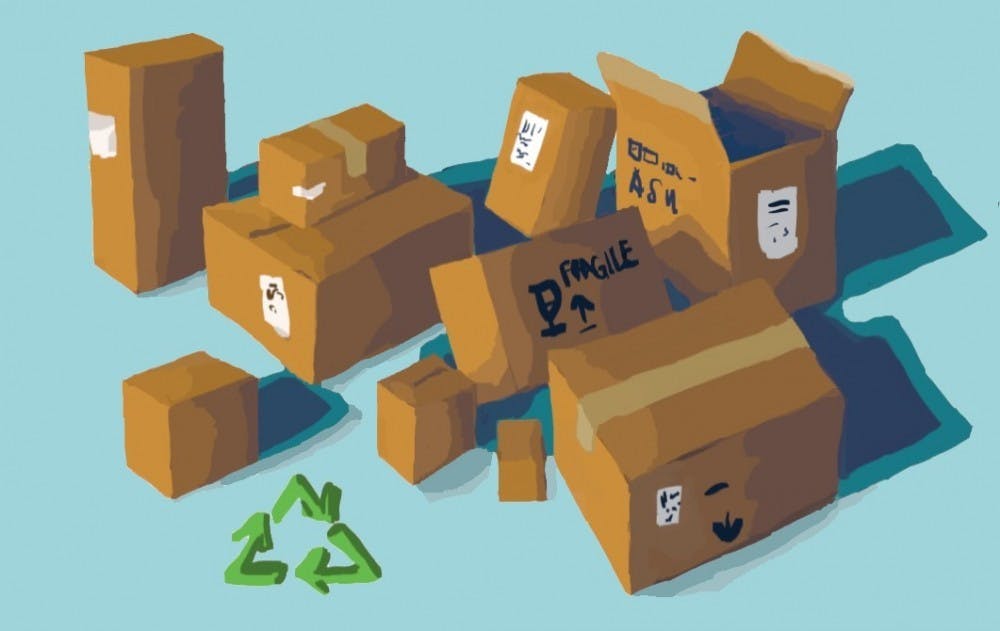Online shopping has boomed during the pandemic due to convenience and accessibility, but this increase has led to a substantial increase in excess cardboard waste.
While the city of Phoenix is encouraging individuals to recycle all clean cardboard from packages, much of it is ending up with other waste or in landfills.
This waste is something Rajesh Buch, senior sustainability scientist at ASU's Global Institute of Sustainability, said is a growing problem.
"Is it hurting our environment?" Buch said. "Bottom line, I think the answer is yes."
According to 2018 data from the Environmental Protection Agency, only around 32% of waste was recycled on average. Even for Americans who do recycle, Buch said many recyclables still end up in the landfill because people often do not recycle correctly.
Useful recyclable materials, such as the fiber in cardboard and paper, are discarded in the trash, which consequently ends up directly in landfills such as those in Phoenix.
Eduardo Rodriguez, operations manager for the diversion and disposal division of Phoenix, said if recycled correctly, the fibers can be converted to valuable raw material.
"People are purchasing more online and are doing all of their ordering online, such as buying more office supplies, and with that comes a lot of fiber," Rodriguez said.
When comparing the data between 2019 and 2020 in Phoenix, Rodriguez said "cardboard saw about a 31% increase."
Rodriguez said this cardboard excess is being managed in Phoenix with the help of a previous upgrade to the city's North Gateway Transfer Station in 2019. This specific location processes recyclable material for north Phoenix.
The $4.5 million upgrade, according to Rodriguez, allows the facility to take in larger amounts of material to keep them from ending up in the city's landfills.
Buch said an additional solution would be to modify the current "take, make and waste economy" because it is not conducive to sustainable practices.
"We should be able to bring it back to the beginning and take less from the planet so that we can make it from waste materials," Buch said. "That's the circular economy, in simple terms, and that's ultimately the answer we want to get to with all of our waste."
With all of the efforts in place to manage the excess waste in Phoenix, it ultimately comes down to the individual. If the percentage of Americans who recycle properly stays in the lower bracket, useful materials will continue to go to waste and damage the environment.
Both sustainability experts and city officials say the contribution of the individual is paramount, but it is also crucial to spread knowledge of clean recycling. If recycling is done incorrectly, it could cause more harm than good for our planet, Rodriguez said.
Individuals and families can take a few simple steps to ensure they recycle correctly, employees in the Phoenix Public Works Department said. All glass, plastic, paper or metal containers should be empty because as little as two ounces of liquid left in a soda can may contaminate an entire truckload of recyclables. In these truckloads, there are as many as 8,000 to 10,000 pounds of good quality recyclables.
"The one thing that we stress is yes, continue to recycle, but recycle right," Rodriguez said. "Always make sure that what you are throwing away is clean, that there are no contaminates."
Reach the reporter at mjmoor16@asu.edu.
Like The State Press on Facebook and follow @statepress on Twitter.
Continue supporting student journalism and donate to The State Press today.




